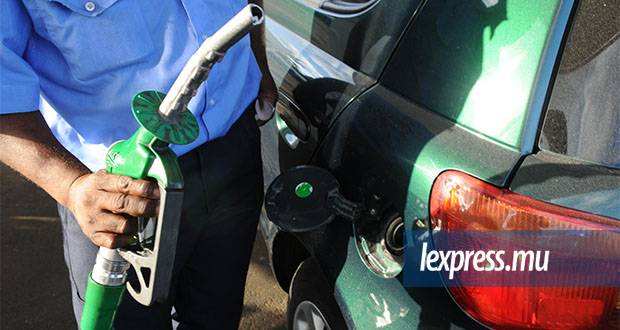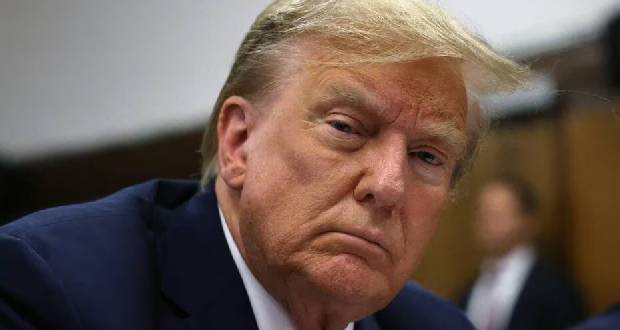Publicité
50 years of Independence: where are we heading?
Par
Partager cet article
50 years of Independence: where are we heading?

Mauritius has inherited many institutions from the British. It is a vibrant democracy but still home to imperfections. The future needs to be shaped up.
We have come a long way. All in all, we are better off than most countries on the African continent. We have proved Nobel laureates Titmuss and Meade wrong: there has been no dizzying growth of the population and we have managed to diversify our economy. Yes, we are far away from that “island of disaster” as V.S. Naipaul so starkly depicted it in his 1972 article “The overcrowded barracoon”.
But let’s give the devil his due. Sir Seewoosagur Ramgoolam (SSR), the “Father of the nation”, may not have been an exceptional person – as so many would wish to depict him! – or “un homme fait d’or pur” (SirVeerasamy Ringadoo dixit) but a fair bit of our “success” goes to him. For one, he was dead against Mauritius having an army. Having an army means that you have to constantly discard old weaponry to buy new one and in the “short” run it’s the economy that pays the price. And, of course, having no army makes it more difficult for a democracy to be supplanted by a “coup d’état” (all too frequent on the African continent).
Secondly, SSR did not just take land from the “oligarchy” to redistribute it, as he might well have said to a chosen few during private meetings held during his 1967 electoral campaign. Thirdly, he saw to it that one can always have recourse to the Privy Council, which means that the final say in justice matters lies with that neutral body well beyond our shores in the land of the “Perfide Albion”.
Yes, Britain might have shown some perfidy concerning the illegal excision of the Chagos and Britain did exploit us by encouraging a sugar-based monoculture while making us import most of our foodstuffs and other basic necessities. However, if we were to cast into one side of the balance all the woes of British colonialism and into the other all the benefits we have inherited, the latter – in my humble opinion – would turn the scales!
The list is long. The British left us a well oiled civil service, a fine legal system, a fairly good road infrastructure, eight reservoirs, the English language (so much admired that our national anthem is still articulated in it!) but I would tend to value most the Westminster system of government.
During these last 50 years we have always shown good democratic behaviour; election results have never been violently contested – as is so often the case on the African continent – and we can safely say that this democratic maturity is a direct offshoot of the Westminster System: that fine legacy, bequeathed to us by our British colonizers.
For, had we been colonised by Iberian countries, the situation might have been different and instead of inheriting democratic values, we might well have inherited the seeds of absolutism. We just have to cast a look on Mozambique and Angola and ask ourselves whether those who have grabbed power there have not been inspired by the likes of Franco and Salazar – kinds of leaders that are hard to imagine in any country with an Anglo-Saxon background.
Yes, during these fifty years, every one who has attained power, has done so by standing up in the public square to solicit votes (in our ‘still despised’ lingua franca) and not by midnight assault at gun point, although this latter way looks more expeditious and less complicated! Some might argue that this has something to do with our “genes”, in the sense that people of Indian origin are less likely to be aggressive.
No doubt, there may be some truth in this argument but we should also not discard the fact that by and large we are an “educated” nation (Most of us can read a newspaper and we do manage to send meaningful messages through mobile phones!) Well, we might not be as literate as those in Northern Europe but we are way ahead of many countries in Africa and Asia.
And this is mostly due to compulsory and free education up to the age of sixteen… and education does broaden the mind. (When the British left in 1968, practically all Mauritian children were attending primary school; whereas in Belgian Congo only 10% of the children were attending primary school – when the Belgians left in catastrophe in 1960. And this meagre 10% rate was among the highest in Africa!)
Yes, we are doing fine if we consider our high percentage passes in School Certificate (SC) and Higher School Certificate (HSC). (And this year, someone even clinched her HSC at the tender age of thirteen!) But are not these exams (inherited from our colonial past) rather outmoded? Don’t they demand too much memorisation, rote learning and the practising of past exam papers? What about exams that test critical thinking like the International Baccalaureate?
Let’s take such a mundane subject as “History”. For the Cambridge SC, a typical question in the history paper might be: “Describe the events that led to a war between England and Spain during the reign of Elizabeth I”. But for the International Baccalaureate the question might be: “If you were the Foreign Affairs Minister in Elizabeth I government, what are the steps you would take to avert a war with Spain?” (further elaboration would be superfluous.)
Also, the Baccalaureate curriculum lays emphasis on intercultural understanding and surely that should foster a greater respect for others in a multicultural society. For one, I still find it incomprehensible how year after year traffic is brought to a near stand-still during some religious festivals. Yes, I respect (and even admire!) your religious fervour, but shouldn’t you at the same time show a bit of compassion? Why do I have to endure a very long and irritating journey (by car or bus) – arriving late at work in the process! – because of your zeal to honour your saints and deities?
And if we are truly a secular state, should not my right to sleep (and that of my baby!) have precedence over your right to say your prayers at a particular time of the night? Smart phones can be programmed to jingle the right time for prayer, and countries like Singapore has even allocated radio frequencies so that prayers can be heard over the radio (obviously, it’s not for me to say how people should deal with their beliefs. But then, if they persist to do so in the same way, we should stop calling our country a “secular” state! In a “truly” secular state, the practice of any religion should under no circumstance interfere with my way of life!)
Really, it is to be wondered why countries displaying the least religious fervour often exhibit the most respect for others. In some countries (like the Netherlands and Norway), it would be unthinkable for traffic to be diverted just because someone, down the road, is marrying his daughter, or for someone to walk her dog close to your hedge (without fail every morning!) so that it can relieve itself, or for rain water to just spurt on people in the street because someone can’t really be bothered to set up a gutter!
Yes, we demonstrate great respect for divinities that we do not see but show so little respect for our fellow humans that we see. What has gone wrong? Why can’t we understand this basic concept (of humanism) that something can be bad because it causes somebody to feel bad?
Of course, one can also feel bad through no (direct) fault of his. For example, I felt bad when, walking through the streets of Port-Louis at dusk, I found some people sleeping it rough on the streets. And I felt awfully bad when I came across abodes (made of cardboard and scrap tin) that lack all basic requirements to make them habitable.
This state of things has been going on for so long, and it is a good sign that we are starting to tackle this problem. But perhaps, we should go a bit faster in the construction of low-cost – but decent! - apartments. The houses built should be healthy, cheerful, and habitable. They should protect human beings and not conspire against them! I won’t say that this is exactly a question of fairness (because some people may not be putting in that extra effort!) but it is mostly a question of foresight.
In these zones of shocking poverty, tons of social dynamite are planted and the slightest incident might just provide that spark needed to explode all the accumulated tension (the Kaya riots of February 1999 are a vivid example). Right now, many are already seeking solace from alcohol and drugs while others are adhering to sects, sprouting like mushrooms close to these quarters that provide such fertile ground for desperate mysticism!
It should not really surprise us that people living under such harsh conditions are reluctant to accept the norms of discipline (the more so, when our public figures themselves do not set the good example!) or that they can be so unstable in their political behaviour. Yes, they are easy recruits for rabble rousers. Well, let’s call a spade a spade. Have we forgotten that politician and his ‘Black Power’ movement of the early 1970’s?
To maintain order, a government can of course keep on increasing its Police force. But this inevitably means that less investments will go to such productive areas like fishing and agriculture (just to mention these two). Indeed, the gap between our agricultural production and our consumption needs keeps on increasing – which is quite worrying.
Pertinent questions should be asked: will the yield of this year reach that of the previous year? How much are we importing in tropical fruits and vegetables (that could have been grown here)? Is it ok for a country surrounded by sea to import sea food from Madagascar? What percentage of our students is enrolled in studies related to agriculture?
As for the exploitation of our “blue economy”, almost one thousand times the size of our island, it’s more rhetoric than action. If my figures are right, every year we are importing Rs 10 billion worth of sea food products. We continue to position ourselves as a seafood hub while in the sea that surrounds us, fish continue to die of old age! When shall we be equipped with a modern fishing fleet?
Of course, gone are those days when a small country could get along “alone in the world”. To set the ball rolling – concerning this fishing industry – we would have to work hand in hand with other states of the region. We would have to unite our maritime fleets and achieve good interconnection by means of satellites.
Rome was not built in a day, and complex difficulties might be waiting in store in the setting up of this vast enterprise. But our bilingualism should help us achieve good understanding through all the stages, and we have to start. Enough of those “suicidal delays”!
Certainly, this “let’s leave it for tomorrow” attitude can prove to be quite costly. As far back as 1980, we should have tackled this “thorn in the flesh” traffic problem – not by the “metro express” (which is causing havoc to our landscape and forceful evacuation all along its zone) but by having a second harbour in the South-East.
This new port would have reequilibrated traffic flow by luring towards it a fair deal of vehicles bound for Port-Louis, thereby making traffic more fluid along the Port-Louis–Curepipe corridor. Isn’t that killing two birds with one stone? For, Mauritius would have had a second harbour while regulating its traffic problem.
Whereas the only raison-d’être of the metro express is to get in and out of our capital city faster at (only) two particular time of the day! – at an estimated cost of 18.8 billion rupees (the cost of a new harbour that can accommodate 50 % of our shiping tonnage is around 150 million US $, which is about 4.5 billion rupees.)
Yes, according to our estimates, the metro-express will cost four times more. And the bigger the project, the greater is the likelihood that extra costs will be sneaked in. According to Transparency International, “with a score of 50 on the Corruption Perception Index, Mauritius is now ranked 54th in the world out of 180 countries.”
And in Africa, where we have often come on top, we are now ranked sixth. Well, we shouldn’t be very surprised. For many years now, it looks as if operating in opacity has become the norm and attacks on the press have become more frequent. But that should not really worry us. I cannot but agree with Lord Jacobson when he said that: “relations between Government and the press have deteriorated, are deteriorating and should on no account be allowed to improve.”
Some may believe in destiny and that everything that will come to pass is already written. But I do not share this view. What will happen is written nowhere in the stars but depends essentially on us. In a real democracy, it’s not the leaders of the day that hold sway. What holds sway is the public opinion. It should always be vigilant and alert and only then will it be able to limit the abuse of power by those who govern us.
No government should be allowed to fool the people. If politicians make a series of promises and are elected on the basis of these promises, then they should fulfil what they promised, else they must be held to account! Nobody should be allowed to win an election through downright lies! And hand in hand with a free press, we should pour scorn on all those who put ethics out of their mind and the state’s money into their pockets. Yes, we are in sore need of leaders with good ethics for a better Mauritius!
This article is far from exhaustive. Quite a few things that we should urgently tackle have been left out: greater investment in science and technology (which has transformed South Korea and Singapore into rich nations), a better distribution of income through the improved status of certain jobs, a greater respect for the environment, a greater use of green energy, a better management of our water resources, more political will in the cracking down on drugs, etc…
And how can I possibly fail to mention this last one? Yes, we are in urgent need of a more disciplined and harder working population that do not have to be constantly pampered – although this topic alone might well constitute a still longer article!
Publicité
Les plus récents






